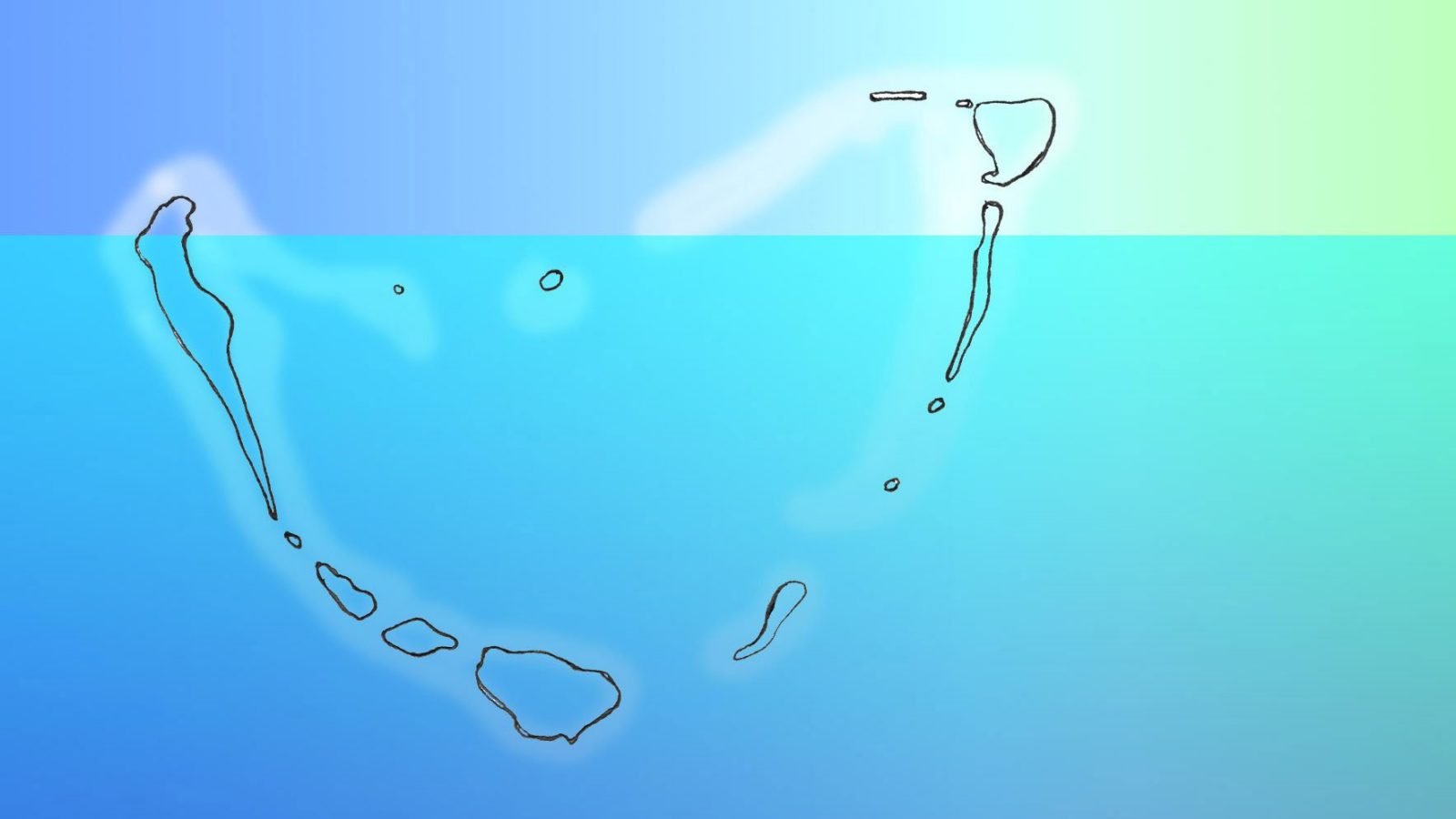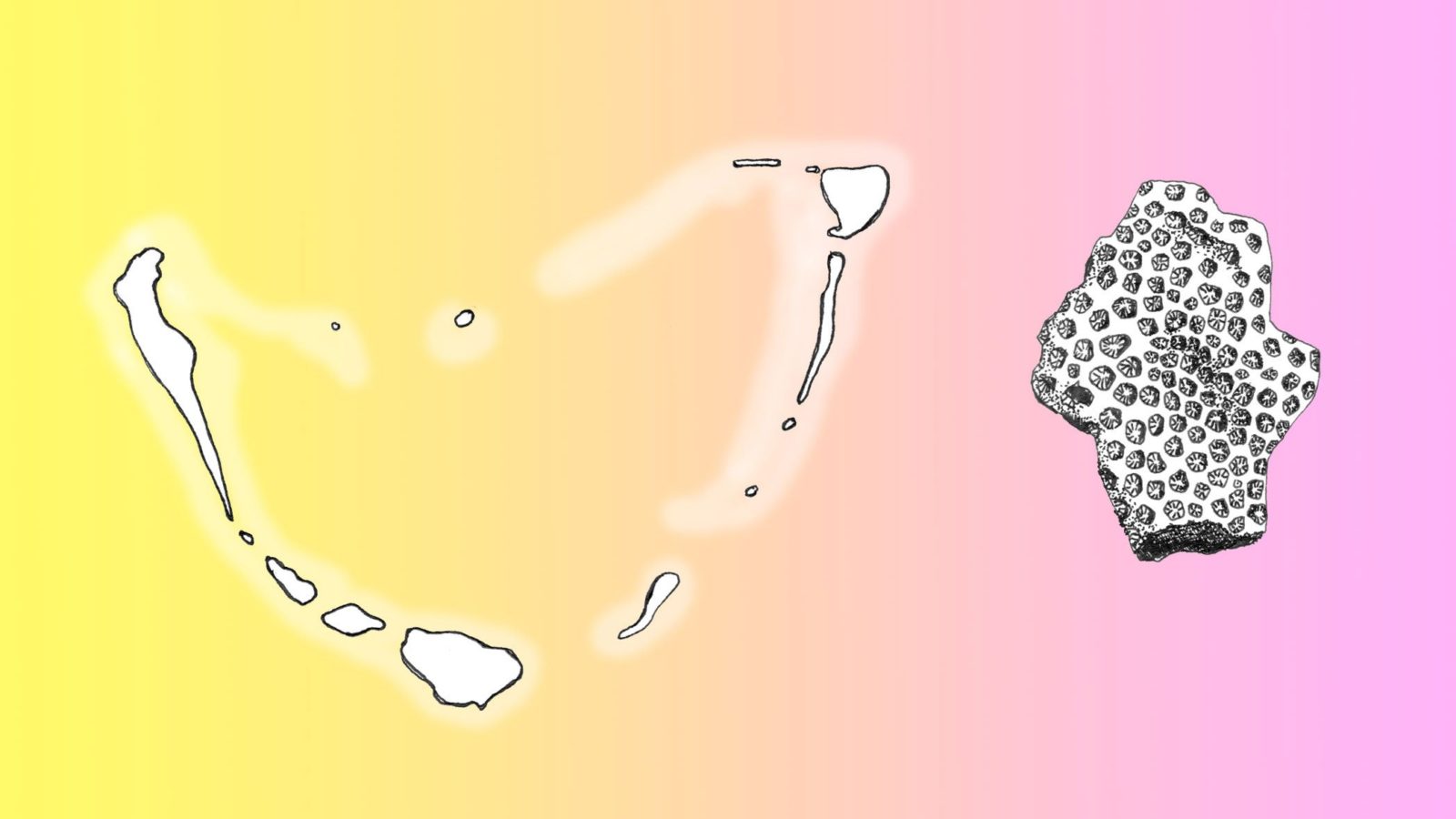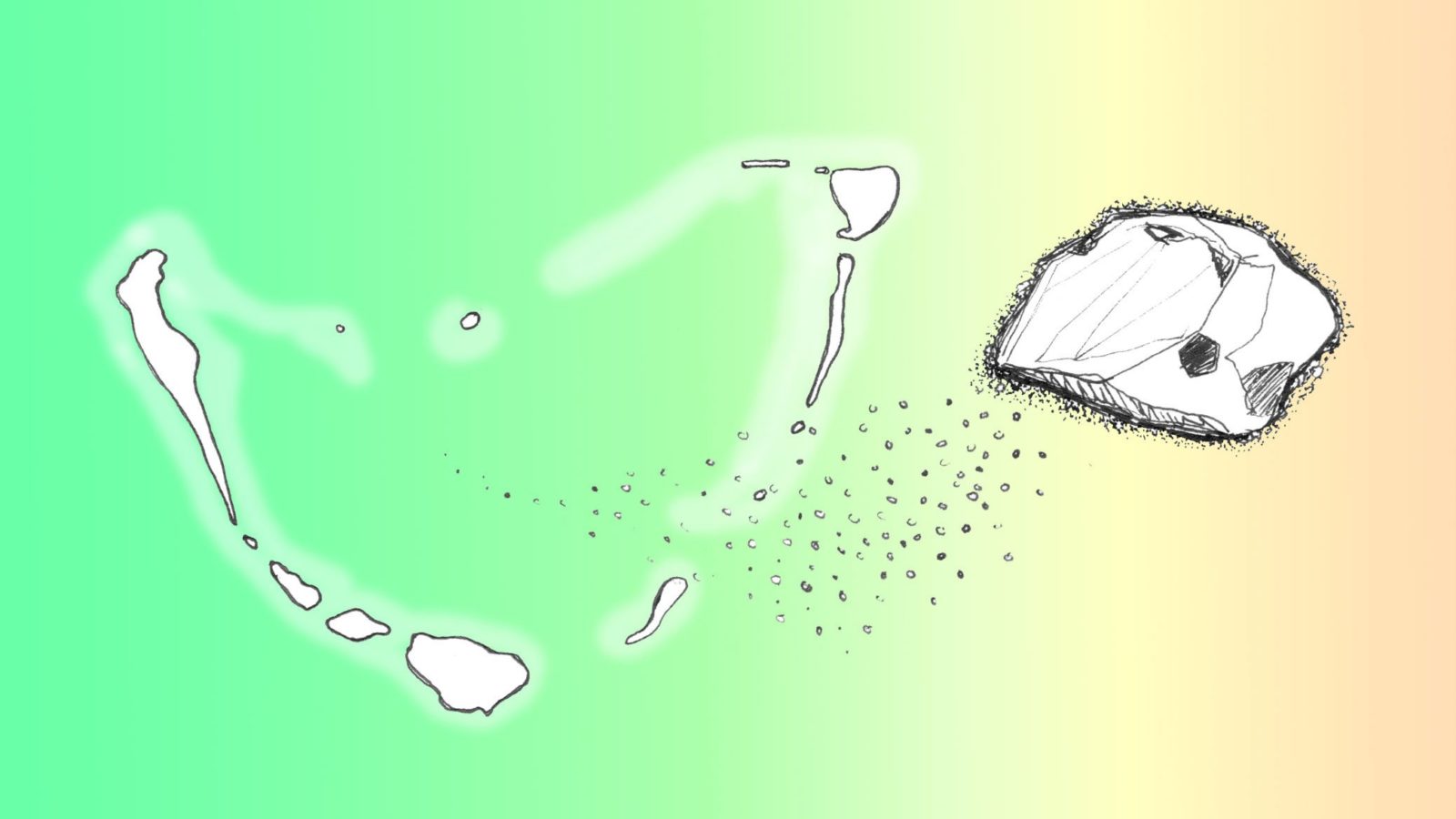Deconstructing the We
Using the Maldives as our (anthropo)scene, we explore how a monolithic and simplistic “We” can be questioned and reframed. Picture Lake Chad as an island of water in the desert and the Maldives surrounded by the rising “blue.” The possible disappearance of the Maldives is exemplary in the frame of the Anthropocene, due to its timescale (our generation might see the displacement of this civilization), its spatial scale (an entire archipelago), its analogical power (the graspable finite size of the islands), and the fact that the Maldives, one of the few countries built on a biological organism, highlights how our lives depend on a fragile harmony between the geosphere and the biosphere.
To probe the meaning of the Anthropocene in this context, we filter it through different perspectives. This approach reveals the intermingling of the different actors and their associated competing interests. One has to take the side seat of the moderator and listen to each stakeholder in order to obtain a more balanced understanding of the situation. Here we take this approach literally by proposing the voices of forgotten stakeholders, i.e. those that contemporary Western capitalist cultures tend to view as inert and lacking agency. Agency, however, assumes many forms. It is a pervasive and inbuilt property of matter and part of its generative dynamism. From this reality emerges an intertwined flux of material and discursive forces. Thus we focus on the actual geo-/bio-resources that make (or break) the Maldives, such as the sand, coral, and the all-encompassing “blue.” Our intention is to raise the major challenge of representation, a key aspect of the filtering process. To address this aspect of the filter, we use computer-generated voices such as those used in GPS systems: a machine interprets the words that were attributed to these unusual stakeholders; the biases built into machine intonation are integrated as a coproduction with humans.
Realizing what the Anthropocene entails is a wake-up call towards reworking and reinventing human relationships with nonhuman agents, be they plant, animal, mineral, or gas. All things and beings have the ability to communicate something of themselves to other beings, and what these voices are telling us is that it might finally be time to listen.
Voice of the blue
Image by Ellie Irons
I won. I finally won.
I’ve cleaned their dishes and their clothes
for so many centuries,
I’ve digested their toxic wastes;
So much waste that I turned into
all the colors of the rainbow.
And they thought they were so big
to survive the wave.
But I showed them.
Big time. And they fled!
Who can use the airport anymore?
Last time I checked, a few stingrays
made some great landings.
This is my legacy: a modern Atlantide
With its iconic underwater walls.
With its ironic swimming pools.
And yes, this is well deserved,
They put this on themselves.
Look at this slick horizon line,
Blue on blue, this is just perfect.
So endless,
So flat.
So . . . very boring.
Am I missing an edge here?
You know what, all this makes me feel
kind of . . . blue.
Voice of the coral
By Ellie Irons
Image by Ellie Irons
Do you see an island?
A calming of the currents?
Safe harbor? Good fishing?
I offer these things,
but not as one, as many.
You say you see “an atoll”
But there is no static form
providing what you seek.
We are a multiplicity.
Alone I cannot speak.
There are multitudes of us,
(we are animals like you),
we interlock, grow, die, calcify,
joining to build an architecture
where the waves lick the sky.
On our rough foundation
you lay your city streets,
your airport, your garbage dumps, whatever.
We offer up the skeletons of our dead
But these atolls of ours are not forever
We build them to change and drift
But your species moves so fast
We think it’s hard for you to see
that what you’ve offered in return
is heat, sediment, acidity
These are things that make us tired
We hear the ice is melting somewhere
We’ve never seen or felt it
Don’t know its cooling touch
But we live the life it’s dealt us
We slow our growth
we bleach
we cease our symbiotic ways
And slip below
the rising waves.
Voice of the sand
Image by Ellie Irons
Once upon a time, I was free.
Rolling and dancing in the sea,
While doing my ecoduty.
Those strange people had let me be.
One day, they put me in a bag.
I tell you, that was a true drag.
All packed, I whistled a sad rag,
As the boat took us in a lag.
Some of my neighbors call me Grit,
Grit from Malé, on Seawall Street.
Sadly this is my jail unit:
I am a sand grain in concrete.



